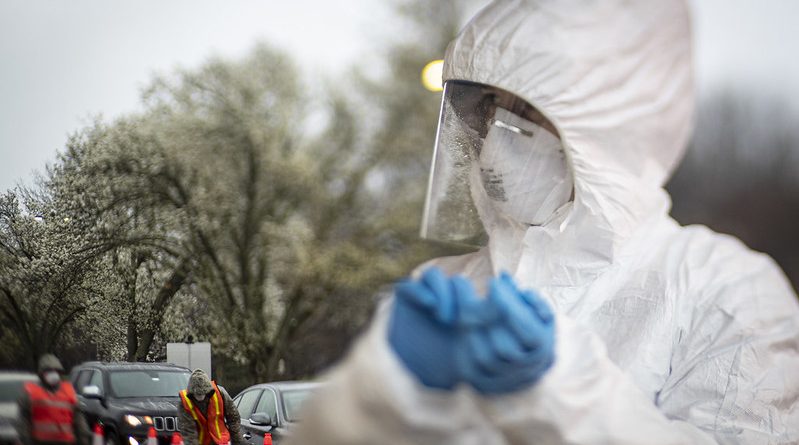COVID-19 and Emergency Ethics: A New Dimension of Medical and Political Response
Natalie Sherman
Staff Writer
As the severity of the COVID-19 pandemic increases at an alarming rate, the hypothetical shortages of ventilators and hospital beds described by the New England Journal of Medicine are now a haunting reality. The rapidly spreading virus continues to wreak havoc across the globe, compelling governments to suspend many of the rights enjoyed by their citizens and doctors to choose which patients to save – decisions that would otherwise be unthinkable in everyday life.
Such decisions are the result of what the Centers for Disease Control and Prevention (CDC) calls “tragic choices.” The CDC defines tragic choices as “public choices involving life and death situations that pit irreconcilable values against one another.” Often referred to as emergency ethics, these are the extraordinary choices that must be made during times of emergency requiring special ethical considerations.
Considering emergency ethics is now the new facet of everyday life for much of the world. The New Humanitarian reports that “people all over the world [are] understanding and getting behind the ethics of ‘flattening the curve’ and changing their behavior to protect others, often at deep costs to themselves.”
Many actions taken by governments in response to this time of emergency, such as issuing stay-at-home orders and banning public gatherings, might be considered draconian during normal circumstances. The New York Times states, “The pandemic is already redefining norms. Governments that initially criticized China for putting millions of its citizens under lockdown have since followed suit.” Indeed, obeying the new restrictions and limitations that have been put on citizens’ rights during this pandemic arguably helps decrease transmission of COVID-19 and reduce the number of cases healthcare professionals will have to take on at the peak of the pandemic.
The South China Morning Post reports that these very considerations are now on trial in the Philippines. Recent versions of an emergency powers bill initially gave President Rodrigo Duterte the right to take control of private firms like public utilities and private banks, a move that would pave the way for Duterte to further consolidate his hold over the Philippine government. Heavy international criticism later forced the idea out of subsequent versions of the bill.
Perhaps the most discussed facet of emergency ethics regarding the COVID-19 pandemic is the decision healthcare professionals must make when facing scarcity, namely triage. Notorious in battlefield medicine but also regularly practiced in emergency rooms, triage is the practice of sorting patients by the urgency of their need. Although the idea of treating someone with a serious injury before someone suffering from a cold is familiar, large-scale disasters and pandemics level new and challenging implications for practicing triage. When critical medical supplies run low, doctors must make decisions not just about when someone will receive care but whether they will receive care at all.
When dealing with patient prioritization, there are three types of medical triage: prioritarianism, egalitarianism, and utilitarianism. Vox describes prioritarianism as widely practiced in emergency rooms, involving the treatment of the sickest and most at-risk patients first. Egalitarianism treats all patients equally and often employs a lottery system. Utilitarianism seeks to maximize benefits with the lives saved. Triage utilitarianism would prioritize younger patients or those with fewer health complications to maximize the number of years and quality of life of the patients they do choose to save.
As noted by The Lancet, hospitals typically use a combination of all three triage approaches: “No single principle is sufficient to incorporate all morally relevant considerations and therefore individual principles must be combined into multi-principle allocation systems.” However, utilitarianism triage has come under fire in recent years for issues of equality and fairness. Ira Bedzow and Lila Kagedan, two medical ethics experts, tell CNN that utilitarianism should not be used in triage except in cases where it is clinically relevant. They argue that medical professionals have no authority to prioritize patients simply because of their youth or any presumed value they may give to society. Other indirect factors, such as comorbidities, are only relevant should they affect survivability or prognosis.
Triage can also be traumatizing to healthcare workers. Doctors and nurses who chose their profession so that they could help others are put into a position where they must make the decision of which patients they will save and which they will be forced to let die.
The COVID-19 pandemic response is often compared to a war, but wartime triage does not account for the diverse victims of COVID-19. If healthcare professionals do have to make tough decisions about which patients to allocate resources to, there are many more ethical considerations to be made than in battlefield medicine. Bedzow and Kagedan explain the harsh realities facing pandemic triage to CNN moving forward:
“In a war, we want to treat and return the strongest and fiercest soldiers to the battlefield to kill the enemy. In a pandemic which is straining medical resources and health care systems, we want something different: to save civilians’ lives in a way that maintains our own humanity.”

